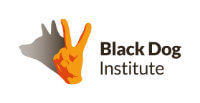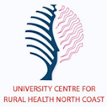Written by Angela Sheridan, WellMob
We know the Christmas period is a busy time, especially for our frontline health and community workers. We’re trying to get everything wrapped up for the year (not just presents!) before we all go on the Christmas break. Most workplaces have their annual shutdown now, a deserved and much needed break to maintain our own wellbeing to get ready for 2023 refreshed and refueled to continue the vital work we do.
It can also be a daunting and difficult time for our clients We know that this time around Christmas and new year can be challenging for many who continue to navigate mental health challenges, grief, loss, disconnection, and family and domestic violence while the services that support them are closed.
How do we as health and community workers know that our patients and clients are going to be ok during this time? Usually, we will work with them on mental health or domestic violence safety plans, crisis phone numbers, and the steps of ‘what to do if this happens’.
Remember that we can now add digital tools and online resources to those safety and wellbeing plans. Online resources are a great way to address some of the stigma surrounding mental health and other wellbeing related topics.
How digital tools and resources are helpful:
- Available 24/7 on the internet
- Apps to track moods
- Apps to create safety plans
- Meditations to calm and de-stress
- Videos to watch and feel connected to country and culture
www.wellmob.org.au – your library of Indigenous wellbeing resources
The WellMob website is an online library of over 260 Indigenous specific mental health digital tools and social and emotional wellbeing resources like apps, videos, podcasts, websites, and factsheets. It is a practical tool you can use to find and share online wellbeing resources that are culturally suitable for your First Nations clients. All resources are made by mob for mob and are available in the one place online. This makes it easy for workers and community members to find resources that support First Nation peoples wellbeing.
How to use WellMob’s online resources to support your clients?
- How to navigate the website: Watch the short WellMob website tour video
- How to use website with your clients: Watch the WellMob Tips for Workers video
- How to engage young people: Watch psychologist Simon du Bois video
- How to use online tools in suicide prevention: Watch Suicide Prevention worker Tiarnee Schafer video
And remember to ensure your clients have appropriate crisis support line contact numbers saved to their phone, with a preference for 24 hour crisis lines over the break. Get help – WellMob for crisis lines list
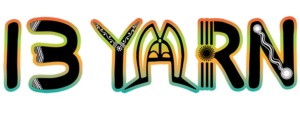
For First Nations mob, call 13 YARN (13 96 72)
Here is a short list of popular resources you could leave with your clients: download pdf to email or print hard copy to share with colleagues and clients/patients
Gender Identity
Our mob come in all colours of the rainbow and we show respect to people of different gender identity and sexual preferences. Whether you identify as a brotherboy,sistergirl, transgender, queer, gay or LGBTQI mob, there is support to maintain your social, cultural and mental health and wellbeing.

This website is part of the Yarns Heal suicide prevention campaign. It includes videos and downloadable posters that offer support for sistagirls and brothaboys.
Yarns heal [website] is for anyone who is gender diverse (LGBTQI+) and feeling sad or alone.
Parenting
Growing up our bubs and kids under good parenting, helps keep all our mob strong. Whether you are a mum, dad, grandparent or carer, parenting and family support can help us bring up our children so they develop into deadly young people.

Parents Under Pressure animations: ‘I’m alright’, ‘just breathe’ and ‘here I am’
These animated videos show some simple parenting tips around bringing up kids in a nurturing environment. The ‘I’m alright’ video shows how parents can make a child feel safe and loved by staying in control of their emotions. The ‘Just breathe’ video shows adults can use breath to calmly deal with confrontation. The ‘Hear I am’ video shows parents how children can be shown love and to feel cared for. They are in English, Arrente and Pitjantjatjara.
The videos are for Arrente and Pitjantjatjara and anyone wanting to see role modelling for good parenting behaviours.
Young People
Keeping our young people safe and well will help grow our next generation of strong leaders. It can be tough being a teenagers today and our youth may need support around stress, self-harm and suicide, relationships and domestic violence.
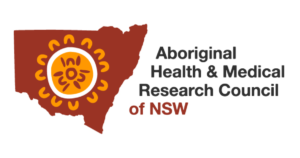
This full deck of playing cards include health messages on a range of topics to encourage discussion while playing. Each card has a different picture of information bite on various health topics. These include mental health messages and thoughts, feelings and relationships, as well as physical health tips on diet, exercise, sexual health, drugs and alcohol.
Holistic health playing cards are for anyone wanting to learn about health whilst playing cards. Useful for health and community workers and educators to play and learn with young people.
Relationships
Strong and caring relationships are part of our culture and wellbeing. It is important to get help to deal with abusive relationships where jealousy, control or violence is occuring.
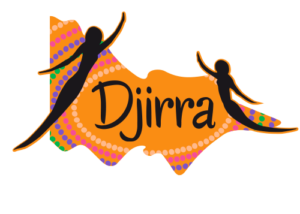
A cartoon video about a young woman’s experience with a jealous and controlling boyfriend. It talks about checking in with friends and getting help if you think you are in an unhealthy relationship.
Healthy Relationships is for young people and teachers wanting to talk about unsafe relationships.
Racism
Racism damages our mental health and social and emotional wellbeing. We need to stay strong and find support if we experience discrimination, prejudice or racist behaviour.

Social and emotional wellbeing videos: no shame in talking it out
These three videos show young people sharing stories about break-ups, connecting to culture and identity plus dealing with racism. They encourage young people to have a yarn and get support when life feels to tough.
These videos are for young people and those working youth, health and education roles that provide support around common youth mental health issues.
Grog
Drinking too much grog can make us sick and lead to bad decisions that often bring shame. To look after our wellbeing we may need support to deal with alcohol addiction.
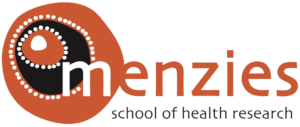
The grog brain story [animation]
A cartoon showing how drinking grog affects the brain. Available in English, Warlpiri and Kriol.
The grog brain story is for Warlpiri people and other people wanting to know how grog affects their health and wellbeing.
Drugs
We can make better decisions about drugs when we understand what they do to our body, mind and spirit. To keep strong and healthy we may need help to deal with drug abuse and addiction.

Animated videos and information about the drug ice. There are tips to help you if you are worried about someone who might be using ice.
Cracks in the Ice is for family members and friends concerned about someone using ice.
Suicide and Self-harm
Our ancestors lived without the trauma of suicide. It is so important to reach out and get help if we are thinking about hurting ourselves. There are people and organisations to help us get through the tough times.

Beyond Now: suicide safety planning
An app that helps you make a ‘safety plan’ that you can use if you have suicidal thoughts. The safety plan sets out the ways you can keep safe, such as making a list of people to call when you are having a rough time. You can select an Aboriginal and Torres Strait Islander version in the app settings.
Beyond Now is for health workers, parents, carers and anyone with suicidal thoughts.

Joe Williams Indigenous man and suicide attempt survivor
A video interview with Wiradjuri man and professional athlete, Joe Williams. He talks about his struggles with mental illness and bipolar disorder and how culture has helped him heal.
The video is for young people and anyone struggling with mental health.
Mind
There is no shame in yarning about mental health. If you have a lot of worries, feel sad, stressed, or have jumbled thoughts – it can help to have a yarn with family, someone you trust or an Aboriginal Health Worker at the local clinic. Find resources here on ways to support mental health.
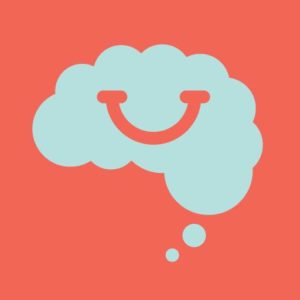
A free app with guided meditations to teach people how to calm the mind. It includes simple meditations such as using breath and mindfulness to reduce anxiety and help people to sleep better. Some meditations are available in the languages of Pitjantjatjara, Ngaanyatjarra and Kriol.
Smiling mind is for anyone who would life to learn how meditation can calm the mind or needs help sleeping.
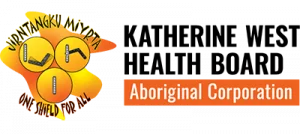
Mental health animations: depression, anxiety, psychosis, staying strong
These animated videos aim to provide information about various mental health problems for Aboriginal people in the Katherine region of the NT. The videos explain what anxiety, depression and psychosis are and what to do if people suspect they have one of these conditions. The Staying strong video offers tips on how to keep your spirit strong.

Got a lot going on? No shame in talking it out
Four downloadable factsheets that cover key areas in life: strong and healthy relationships, alcohol and drugs, stress and pressure and mental health.
These factsheets are for anyone who has worries, is feeling stressed or is having trouble with drugs and alcohol.
Eating Well
Eating good tucker has always been one of the most important things for our mob. Sometimes we can do with some help to make good choices when shopping, eating and cooking as part of a healthy lifestyle.
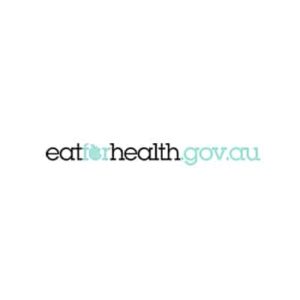
Aboriginal and Torres Strait Islander guide to healthy eating
A downloadable poster showing which foods to eat more of and which foods to avoid. The poster comes in A4 and A3 sizes.
This poster is for people who want a snapshot of healthy eating in pictures.
Eating Disorders
We need to eat good tucker stay well and our ancestors always knew what and when to eat. ‘Eating disorders’ are a complex illness and need expert treatment and support. They include medical conditions such as ‘anorexia’, ‘bulimia’, ‘binge eating’ and other unhealthy eating patterns.
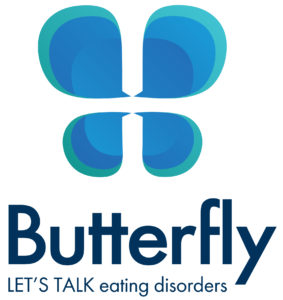
Butterfly Foundation for Eating Disorders
A website with information, support and helpful resources about eating disorders. It includes an online counselling service and training resources for workers.
Butterfly Foundation is for anyone having problems with their eating habits or body image, or concerned about someone else.
Sleep
Our bodies and brains need a good night sleep to repair, grow and give us energy for a new day. There are lots of things we can do to make sure we get enough sleep to feel deadly!
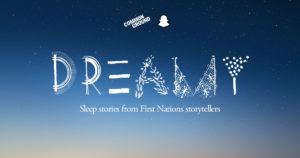
Dreamy: sleep stories from First Nations storytellers
This podcast app consists of a collection of sleep stories created by First Nations storytellers. These sleep stories bring a tradition of storytelling as old as time into the digital space. The stories are grounded in connection to Country and provide listeners with a sense of calmness that may help with sleep difficulties.
Dream is for people who have difficulties with falling asleep.



